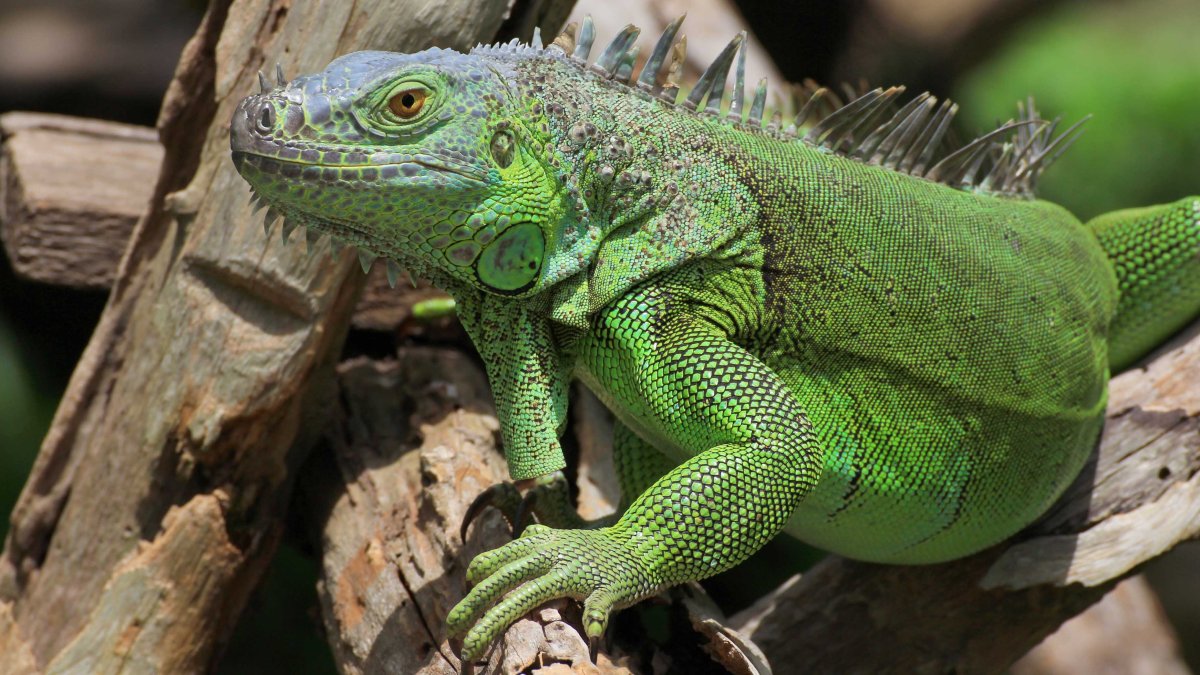As temperatures are set to drop in South Florida on Tuesday, there is a possibility that iguanas will become completely paralyzed, causing many of them to fall from trees.
Fallen iguanas are a common sight in the region due to its large population.
But beyond knowing what is happening, it is still an event that causes surprise and curiosity.
According to the Florida Fish and Wildlife Conservation Commission, iguanas fall when temperatures are below 50°F, and that possibility is likely this Tuesday.
The forecast for Tuesday indicates that in parts of South Florida, such as in Miami-Dade, Broward and Palm Beach counties, minimum temperatures could drop below 50°F, due to the presence of an intense cold front.
But in addition, the wind will be blowing strongly on Tuesday with gusts up to 25 mph. The wind may make it feel cooler, with temperatures in the upper and mid-40s°F across the metropolitan area.
“When temperatures in South Florida approach freezing, non-native green iguanas can become stunned and fall from trees, entering a state of physical inactivity where their muscle control is temporarily shut down,” the FWC explained.
Why do iguanas freeze?
Green iguanas, a non-native species to Florida, are cold-blooded animals, which means they have a particular way of regulating their temperature.
The physiology of iguanas plays a significant role in their susceptibility to cold.
“As cold-blooded animals, iguanas rely on external heat sources to regulate their body temperature. In colder conditions, their metabolism slows down, and they become sluggish,” explains Iguana Control, an organization that offers professional services to reduce the presence of green iguanas on properties in South Florida. “While immobilized, iguanas are at risk of injury or predation, but it’s important to note that their immobilization is temporary and often reversible.”
Experts point out that these animals should not be disturbed or mistreated under the assumption that they have died, as they will gradually move with the heat of the sun and the increase in temperatures.
Study suggest they are adapting
However, despite its characteristics, in 2023, research suggested that the phenomenon of iguanas falling in Florida could become rarer in the future, both due to rising global temperatures caused by climate change and a change in the iguanas’ own resistance to cold.
Large iguanas appear to be adapting.
James Stroud, a postdoctoral research associate at Washington University in St. Louis, found that most of the most common iguana species in South Florida were able to withstand slightly lower temperatures in 2020 than they could even four years earlier—a drop of about 2 degrees Fahrenheit, according to his article published in the journal Biology Letters.
Stroud’s study found that the magic number for the seven species they observed was approximately 44 degrees Fahrenheit. At that temperature, most lizards and iguanas in South Florida become paralyzed.

